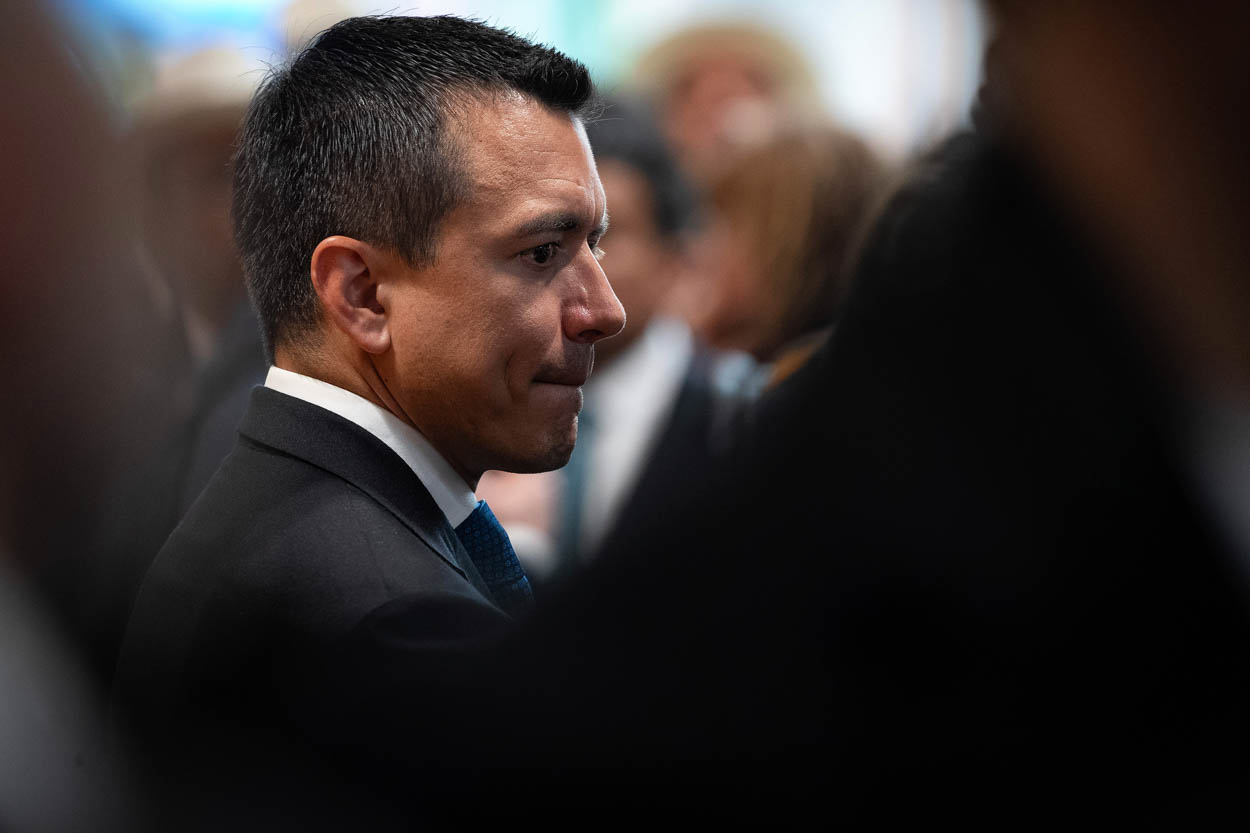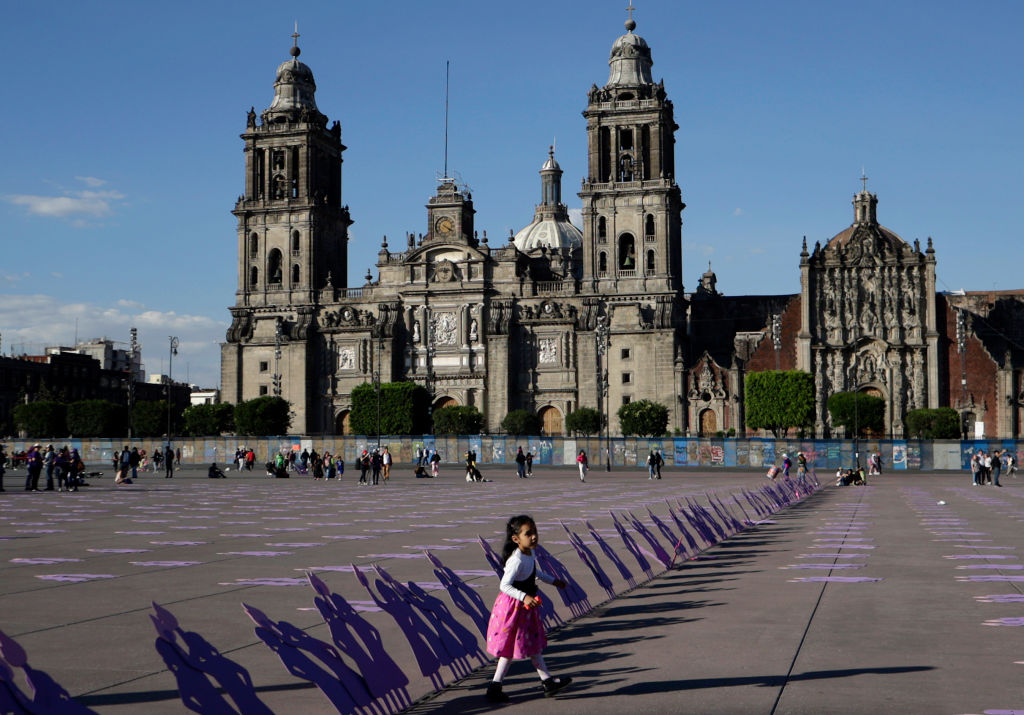Iran and Islamic Terrorism in Latin America: An Emerging Threat?
Iran and Islamic Terrorism in Latin America: An Emerging Threat?
In remarks to the American Jewish Committee, COA Vice President Eric Farnsworth examines Latin American links with Iran, particularly with Venezuela. Citing evidence of activities by Hezbollah agents in South American, Farnsworth offers recommendations to counter negative influences that could lead to terrorist actions.
An Emerging Threat?
***As Prepared for Delivery***
Remarks before the American Jewish Committee
Greater Miami and Broward Chapter
Eric Farnsworth
July 17, 2008
Thank you very much, Juan, for your kind words, and for hosting this important program this evening. It’s good to be with you, and it’s particularly gratifying to be on such an impressive panel with Claudio Grossman and Patricia Poleo, both of whom have been absolute stalwarts in the fight for justice, transparency, and human rights across the Americas.
Of course it’s good to be out of Washington, where the political moment has taken over. I suspect Claudio may feel the same way. You might have heard there’s an election going on. But at least you know who your friends are up in Washington, because they’re the ones who stab you…in the chest.
The topic we are discussing this evening is an important one. In fact, one of the columns I wrote for PODER magazine last autumn, entitled, “The Company We Keep,” addressed Iran’s emerging profile in the Americas, in the wake of President Mahmoud Ahmadinejad’s infamous speeches in New York at the United Nations and at Columbia University, followed immediately by his travel to Latin America. So the topic of discussion this evening has been much on my mind in the past year, and this program is timely, particularly as we head into elections in the United States and both campaigns are developing their policy stances on the Americas.
And I also want to both highlight and thank the AJC and its partners for keeping these issues alive until justice is done. Can it really be that the bombing of the AMIA Jewish Community Center in Buenos Aires was 14 years ago, and the perpetrators have still not been brought to justice? But for the good work of the AJC and others, the bombing and also the bombing of the Israeli Embassy in Argentina—the only instances of global reach terrorism in the Americas prior to 9/11—may well have been pushed aside.
But we have not forgotten—and we cannot forget. Indeed, in the words of Edmund Burke, “[The only thing] necessary for evil to succeed is that good men do nothing.” Albert Einstein expressed much the same idea when he said that, “The world is a dangerous place to live, not because of the people who are evil, but because of the people who don't do anything about it.”
And this is what I want to discuss with you this evening. We know that there are bad actors in the Americas. There have always been bad actors, and there always will be. The question is not whether there are bad actors with ill intent. The question, rather, is what will the Americas do?
The State Prosecutor of Argentina has concluded that the bombings in the early 90’s were executed by Hezbollah, which is supported by Syria and sponsored by Iran. They were decided and organized by the highest level leaders of the former government of Iran, and Argentina and INTERPOL have issued arrest warrants for several senior Iranian leaders and former leaders.
Further, Iran-backed Hezbollah agents remain active across Latin America, in particular the tri-border area of Argentina, Brazil, and Paraguay, in such areas as raising funds and recruiting for extra-legal activities in the Middle East. And other activities have been alleged. These activites have been condemned repeatedly, most recently on Tuesday by a bipartisan resolution in the US Congress that passed on a voice vote. And we thank Congressional leaders like House Foreign Affairs Committee Ranking Member Ros-Lehtinen and Congressmen Klein, Mack, and Congresswoman Wasserman Schultz for remaining at the forefront of these issues.
Clearly, Iran is a bad actor globally. But, so long as Iran remained an outsider to the region, without benefit of local connections or legitimacy, its activities in the Americas were likely to end there.
That dynamic has now changed. Venezuela’s leader has proudly and loudly midwifed a burgeoning Iranian presence in the Americas. At the initial invitation of the Venezuelan leader, President Ahmadinejad has traveled to Venezuela, Bolivia, Ecuador, and Nicaragua, most recently last autumn, and President Chavez has been to Tehran where he was awarded Iran’s highest state medal for supporting Iran’s nuclear ambitions internationally.
Trade and investment deals between Iran and Latin America now total well over $20 billion. Iran—not Brazil, Canada, or Spain—is now the second largest investor in Venezuela. Direct air links between Caracas and Tehran have been established, with allegedly lax customs controls. Iran has beefed up its regional diplomatic representation, and some analysts have suggested that Bolivia’s large uranium deposits may be on Iran’s global shopping list.
According to senior Colombian officials, hard drives seized in the successful operation last winter against FARC foreign affairs head and chief of staff Raul Reyes have shown Iran’s growing influence in the region. Based on these computer records, last month the US Treasury Department’s Office of Foreign Assets Control accused Venezuela of providing cash and safe haven to Hezbollah militants. According to OFAC, “It is extremely troubling to see the Government of Venezuela employing and providing safe harbor for Hezbollah facilitators and fundraisers.” And I think most of us would agree.
The reasons for Venezuelan-Iranian collaboration are obvious enough—both leaders despise the Bush Administration, and are looking for any global forum to denounce the United States. Additionally, for Iran, collaboration with Venezuela and other Latin nations reduces its global isolation, including at the International Atomic Energy Agency where Syria has been joined by Venezuela and Cuba as nations unhelpfully providing political cover for Iran’s nuclear programs. Connections in Latin America provide access to energy resources including technology and finance, and build Iran’s global networks. Iran’s leaders are not stupid—they know a good opportunity when they are presented with one.
Less certain is what Venezuela—and certainly what Bolivia, Ecuador, and Nicaragua—hope to gain from a close association with a nation that has been designated a state sponsor of terror, or with a leader who has called repeatedly for the destruction of both the United States and Israel, and who has questioned whether the Holocaust actually occurred. What possible good can come by introducing global security challenges into the hemisphere in a new and provocative way?
More broadly, with all the problems in the region, does Latin America really need to gain a global profile as a region that welcomes relations with global bad actors more than it welcomes responsible engagement in the global community or the promise of enhanced direct foreign investment and development? Would it not be better to work together with the global community to find ways to cooperate on economic development, democracy promotion, and the protection of human rights and the rule of law?
Increased trade, investment, and travel links do not in and of themselves imminently threaten the United States or our interests, to the extent further Iranian inroads in the Americas are contained. But these issues are worth close observation and continued vigilence. And in the meantime, anything that builds Iran’s international political legitimacy could be destabilizing, and it would also be, surely, unwelcome.
Some would argue that Latin American nations are sovereign as is Iran, and that whatever international associations they want to keep should be none of our business. Indeed, sovereignty is rightly a cherished principle in the Americas. But sovereignty cannot justify support for global reach terrorism, be it in the Americas, the Middle East, or somewhere in between.
Which of course raises the question of what should be done about it. Or what, in this case, good men will do.
Several steps should be considered by democratic leaders in the Americas, particularly those which aspire to greater global leadership and responsibility. In the first instance, democracy itself should be reinforced, because healthy democracies in Latin America tend to support patterns of responsible hemispheric behavior. Democratic governance, and the institutions of democracy, must continue to be nurtured as a top priority for hemispheric institutions such as the OAS. The hemispheric democracy clause, signed with much fanfare in Lima on September 11, 2001, should be utilized more aggressively as an instrument to promote sound democratic practices in the hemisphere, as should relevant democracy criteria in MERCOSUL and elsewhere.
Second, monitoring and vigilence of illicit activities should be expanded in a cooperative manner by nations that understand the destabilizing nature of a robust Iranian presence in the Americas. To the extent illegal or threatening behavior is exposed, law enforcement and judicial actions should be coordinated to root it out, including combined efforts to bring to justice those responsible for the AMIA and Israeli Embassy bombings. And Latin American nations that have not yet recognized Hezbollah and other Middle Eastern groups as terrorist organizations should do so immediately, and take steps to deny their representatives safehaven in the hemisphere.
Third, with reference to Iran specifically, requests to open additional consulates and build diplomatic and commercial presence should be resisted. After all, there isn’t much of an Iranian diaspora in Bolivia or Ecuador.
More broadly, this is a test of the inter-American system. The nations of the Americas must decide what kind of a hemisphere we are attempting to build, and then work together to build it. Brazil—a nation which has voluntarily given up nuclear weapons—or Argentina—a nation that has been seared by Iranian-supported terror—or Canada—a nation hosting the next defense ministerial of the Americas and a nation which has recently looked to increase its hemispheric profile—and many others including the United States—should stand unflinchingly for democratic principles, rejecting behavior by those either within the region or without who refuse to follow responsible hemispheric norms. Doing so would create an expectation of responsible behavior, and a breakwater for a tide of Iranian opportunism that might otherwise develop to the detriment of the Americas.
Many other steps could be considered, depending on how the situation may develop. But the bottom line is this: now is the time for good men—for good people—to stand up to paint a vision for the hemisphere based on the norms of democracy, open markets, and the rule of law.
Before another AMIA occurs.
Thank you for the opportunity to be with you this evening.







